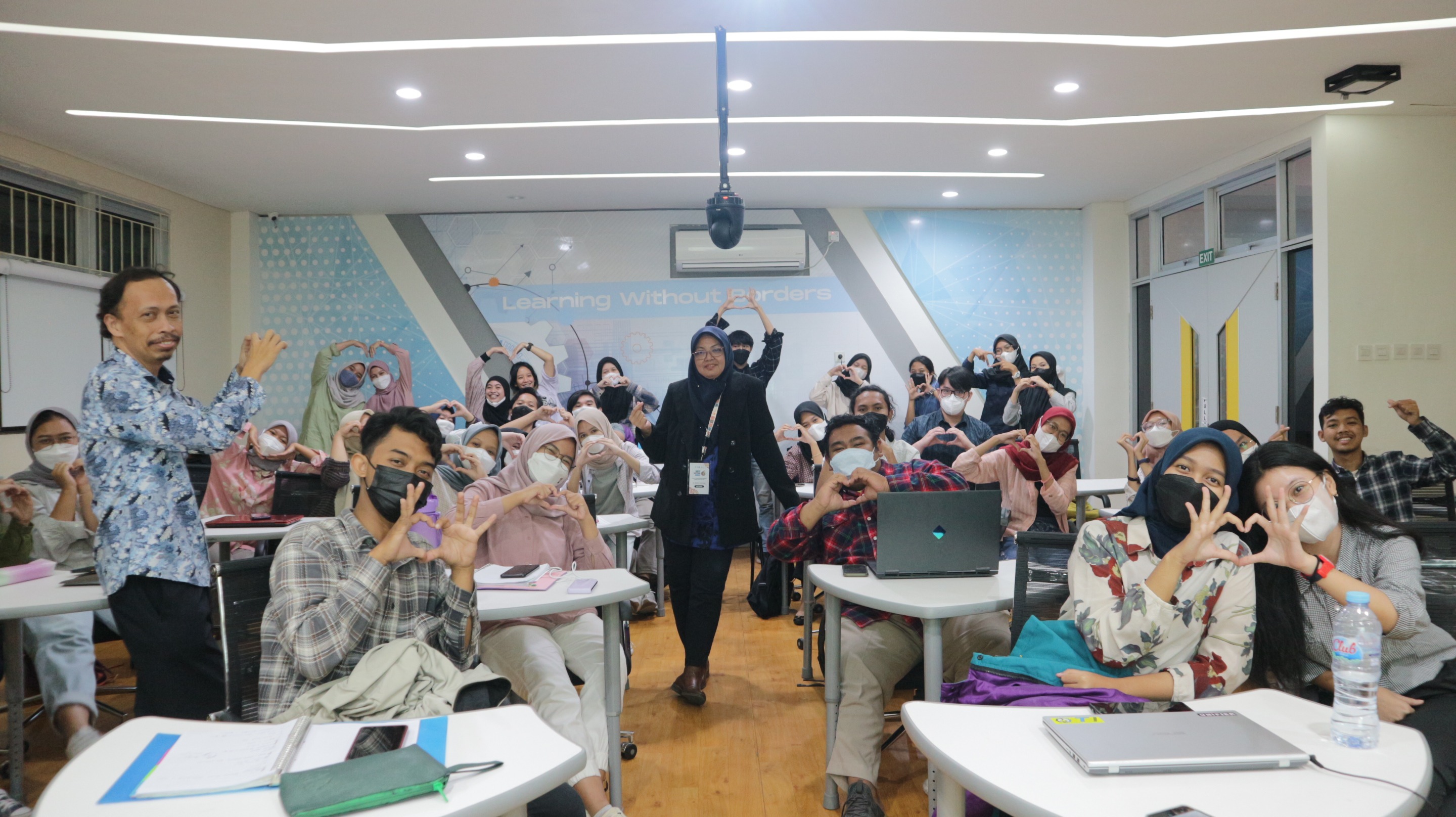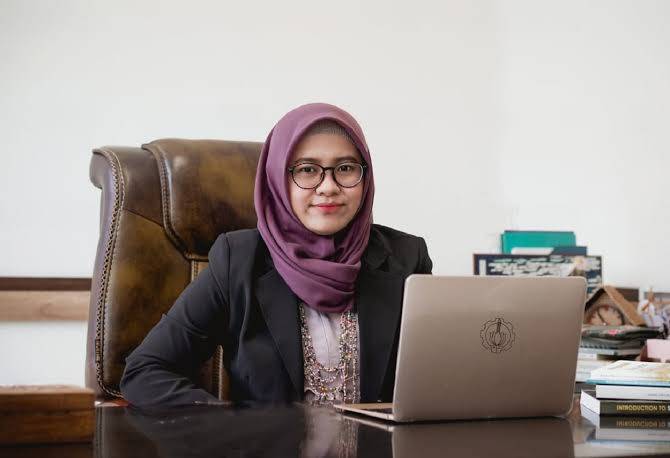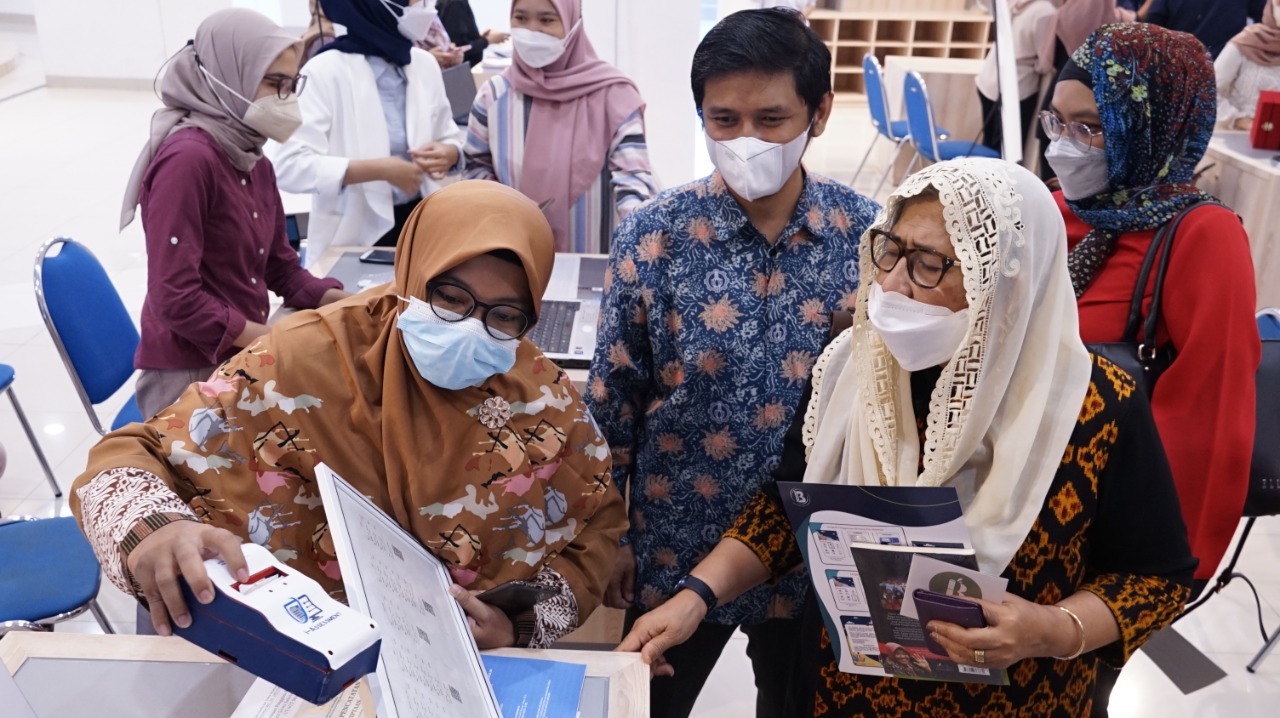L’Oréal and UNESCO collaborated with the Organization for Women in Science for the Developing World (OWSD) to organize the For Women in Science (FWIS) program to support talented females researchers in the field of science. To that end, FWIS held socialization for female researchers, including those in the Institut Teknologi Sepuluh Nopember (ITS), as well as a talk show titled Stop the Drop: The Struggle and Potential of Indonesian Women Researchers in STEM at the ITS Research Center Building, Thursday (16/6).
President of OWSD Indonesia, Dr. Sri Fatmawati M Sc, said ITS, as a program house institution, also cooperates in launching OWSD efforts by launching various programs. Among them are science series programs, internal and external events, fun races, exhibitions of works, and making books together. “This is done to create an ecosystem of research access for women,” said the ITS Chemistry Department lecturer.
Furthermore, the woman familiarly called Fatma explained that female scientists have started leading innovative research worldwide. But despite their remarkable findings, women represent only 33.3 percent of researchers globally, and their work rarely gets the recognition it deserves. “Only 3 percent of the Nobel prizes for science have ever been awarded to women,” she said concernedly.
Meanwhile, the Daily Chairperson of the Indonesian National Commission for UNESCO (KNIU), Dr. Itje Chodidjah MA, said it was necessary to foster the spirit of female researchers in achieving national and international achievements. “The most important thing in research is its use for people’s lives and the environment, and aims to improve the welfare of the community,” she reminded.
Furthermore, Itje explained that the FWIS program was first held globally by L’Oréal and UNESCO in 1998 and launched nationally in Indonesia in 2004. For 18 years of running this program in Indonesia, FWIS has provided awards and funding for scientific research to 63 young Indonesian female researchers. Five of them have succeeded in making the nation proud by winning the L’Oréal UNESCO For Women In Science award in the international arena.
The L’Oréal Foundation and UNESCO have worked together for more than 20 years to help empower more women researchers. This is to achieve scientific excellence and participate equally in solving the significant challenges facing humanity.
To date, L’Oréal has awarded more than 100 winners, five of whom have won Nobel prizes. “Working in the Physical Sciences, Formal Sciences, and Life Sciences on five different continents, these leading women researchers are helping to change the world through their discoveries and are also role models for the younger generation of female researchers who want to pursue their scientific careers,” said Itje.
Every year, according to Itje, the L’Oréal-UNESCO FWIS program supports more than 250 talented young women researchers. Through 52 regional and national programs, the L’Oréal Foundation and UNESCO support at essential periods in their careers, during theses or postdoctoral studies.
Itje then advised that much remains to be done to achieve true gender equality in science. “One day, we will live in a world where girls are encouraged to study science, where women have adequate support to balance research responsibilities and motherhood, and where scientists are judged purely on their discoveries and their work potential for change the world,” she concluded. (ITS Public Relation/far)
Reporter: Silvita Pramadani




